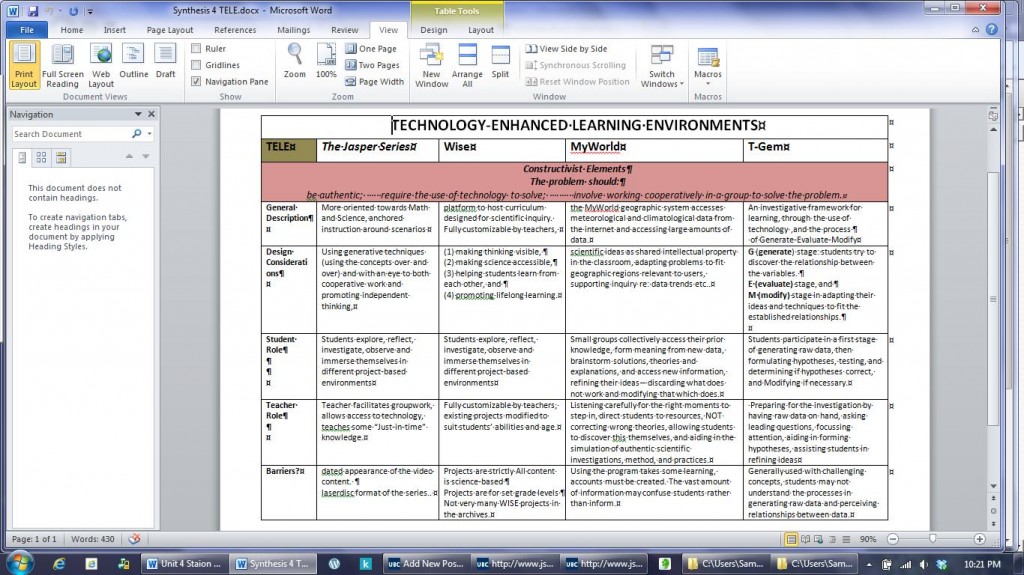According to Resnick and Wilensky (1998), while role-playing activities have been commonly used in social studies classrooms, they have been infrequently used in science and mathematics classrooms. Speculate on why role playing activities may not be promoted in math and science and elaborate on your opinion on whether activities such as role playing should be promoted. Draw upon direct quotations from embodied learning theories and research in your response.
I think the difficulty with role-playing in science and math class activities law in the logical foundation and analytical approach we take to these disciplines. It is easy to engage in role play in a Humanities class; a certain amount of creativity and imagination is required to engage in this activity. It is at odds with the traditional approaches to math and Science to stress the concepts of creativity and imagination. And yet, a look at the greatest Mathematicians and Scientist will tell us that cold facts and analytical approaches to knowledge are not enough. We need to have an intuitive ability, incorporating creativity and imagination, to excel in these areas.
Zucker et al (2008) investigated whether students would be more successful with probeware and a tailored set of instruction materials. Predictably, there was an increase in student performance: Students who used these materials “showed gains that were statistically significantly higher than students who did not (46). This is not the same as the Nintendo Wii approach – there is no remote sensor that allows us to play tennis or golf; instead, this is an approach to knowledge acquisition that involves a specific set of tools to accomplish the task at hand.
A different approach to embodiment learning is Gerofsky’s examination of gestures that were less consciously controlled; more in the form of “a largely unconscious way for non-verbal communication” (322)
Gerofsky,S. (2010). Mathematical learning and gesture. Gesture 10:2/3
John Benjamins Publishing Company
Resnick, M. & Wilensky, U. (1998). Diving into complexity: Developing probabilistic decentralized thinking through role-playing activities. Journal of Learning Sciences, 7(2).
Zucker, A., Tinker, R., Staudt, C., Mansfield, A., & Metcalf, S. (2008). Learning science in grades 3-8 using probeware and computers: Findings from the TEEMSS II Project. Journal of Science Education and Technology, 17, 42-48

